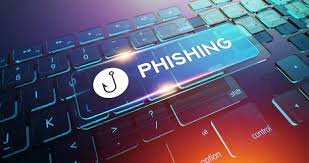Did you receive a Neon Refunds Scam Text claiming to be from the Neon? Is the Neon Refunds text scam or legit? Read this review to find out why you should be wary of such Texts.
What is Neon Refunds Scam Text
Neon Refunds Scam Text are fraudulent texts sent by scammers. They claim to be offering refunds and prizes. The texts also contain a link but the phishing text have, unsurprisingly, nothing to do with the Neon and these text contain links which you are asked to click on. They are however links created by the scammers to obtain personal information from unsuspecting people.
The Neon Refunds Scam Text contains viruses, spywares, malwares, which are harmful to devices and can hack and destroy a device.
NEVER click on email links — they are far, far too easy to fake. Type the URL yourself to be certain where you are going.
The best thing you can do when receiving a text like this is to block the sender and delete it. If you think you may have been a victim, you can report unauthorized transactions online.
Tips To Protect Yourself From Neon Refunds Scam Text
- Verify the Sender: Ensure the text message is indeed from the legitimate source (e.g., the official Neon mobile network or a known company). Verify the sender’s number and email address.
- Beware of Generic Messages: Be cautious of generic or vague messages. Legitimate companies usually include specific details in their messages.
- Don’t click links in text messages. Links are often used to install malware or keyloggers—software that tracks what you type. If you’ve clicked a link by mistake, consider installing an antivirus app to scan your device.
- Don’t respond to a suspicious text message. Like website links, text responses can be used to verify your phone number and gain access to your personal information. Some financial institutions, including Navy Federal, do use text messages to verify suspicious purchases. However, those texts will never request personal information. Check with your financial institution to see if it offers SMS text banking or mobile alerts. That way you can identify the difference between a real message and a fake.
- Do Not Share Personal Information: Never provide personal information, financial details, or sensitive data in response to unsolicited text messages. Legitimate companies do not request this information via text.
- Check the URL: If a link is provided, manually type the official URL into your web browser rather than clicking on the link in the message. Scammers often use fake websites to collect information.
- Report Suspicious Messages: If you receive a suspicious message, report it to the legitimate company or network and relevant authorities.
- Use Security Software: Install and keep up-to-date antivirus and anti-malware software on your devices to help detect and prevent phishing attacks.
You may also get other similar texts as they come in various form, it is in your own best interest that you don’t click on it, simply delete it and inform others so they don’t fall victim.
Conclusion
From the Foregoing, it is clear that the Neon Refunds Scam Text is a phishing scam, Users should not click on the link if and when they receive such message.
To Read Further on other Online scams, Click Here.

